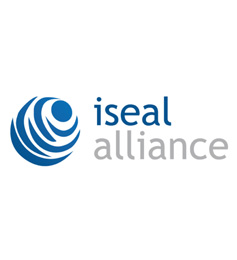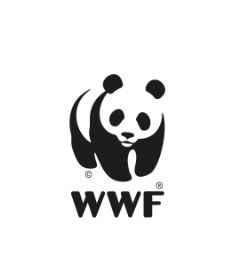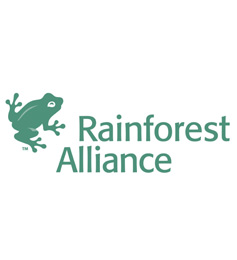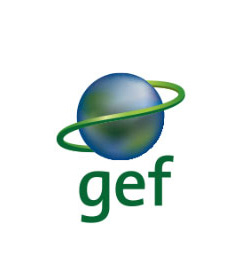Many agricultural challenges and barriers to sustainability are commonly experienced the world over. However, when it comes to exchanging lessons learned and ideas for solutions, the valuable perspectives and input from farmers, producers, governments, local scientists, development practitioners, and regional communities are often missing, failing to enrich global industry and policymakers.
The Good Growth Solution
A limited exchange of experience and know-how throughout the supply chain reduces our ability to understand and address the root causes of unsustainable production. To improve the flow of information and lessons learned throughout the supply chain, the Good Growth Partnership has rolled out a long-term knowledge sharing strategy, which includes mobilizing the essential resources to enable exchange and lessons learned from the ground up, as well as the delivery of a capacity enhancement offer adapted to our community of practice members‘ needs. In addition, GGP is committed to increase evidence for policy and other decision makers on the effectiveness of the adoption of voluntary sustainability standards mechanisms through continued support to Evidensia.
Through the FOLUR K2A Global Platform GGP aims to expand the existing Community of Practice and its collaborative digital learning platform to the benefit of the 27 Country Projects, along with promoting knowledge products related to impact, effectiveness, and business value of sustainability initiatives, consolidating studies, practices, and success from the FOLUR country projects and partners.
Our Goals at a Glance

Number of commodity producing countries represented in the Green Communities Community of Practice.

Feature publication assessing the impacts of demand and transactions on sustainable production.

Number of annual users engaged with Evidensia which will host a minimum of 150 research documents that provide evidence on the effectiveness of deforestation free commitments and sustainability standards.
Food & Agricultural Commodity Systems Community
The Food & Agricultural Commodity Systems Community evolved from the Green Commodities Community, founded in 2014. Today the Community supports +500 members by providing a safe space to share, shape, and learn progressive practices and innovative solutions in effective collaborative action and effective food systems governance, founded on the principle that “Learning Works Best When It Is Shared”. Through learning & developing capacities, networking & sharing lessons and supporting practitioners with engaging their stakeholders, the community enables participants to openly share stories, successes, failures, ideas, challenges and solutions to transform food and agricultural commodity systems. Since 2021, the Community of Practice also counts on a highly interactive Digital Learning Platform to further promote learning exchange among practitioners.
The Community runs facilitated dialogue and knowledge exchange based on the requests and needs of community practitioners, particularly on practices such as effective communications, systems leadership, working with power, working through conflict, inclusion, empowerment & gender equality, cultivating transparency, and strengthening integrity systems.
A defining characteristic of the Food & Agricultural Commodity Systems Community is our significant participation from major commodity producing nations. It is essential for lessons, knowledge and experience to be cultivated and shared by those on the ground, in regional and national governments and from the farmers themselves. Without these voices and experience, interventions for supply chain sustainability miss the granular relevance, tangibility and invaluable wisdom from those who live and depend on the land.
Good Growth Conference
Every 18 months of its pilot phase, the Community has convened at the Good Growth Conference to present findings, deepen and share experience between sectors and countries.
Organized by the UNDP with support from national host governments, the Good Growth Conference strived to enrich perspectives and provide new insights among an array of supply chain actors including representatives from government, local authorities, youth, women’s and indigenous groups, technology experts, journalists and business leaders.
Beyond fostering new partnerships and knowledge exchange, the conference has been designed to provide experiences that can transform the views and practices of key decision makers in commodities sectors.
The 2019 Good Growth Conference took place in Lima and the Peruvian Amazon , while the 2021 edition was held virtually.
A Global Impacts Platform: Evidensia
Currently, there is a lot of focus on voluntary standards and ‘zero deforestation’ commitments related to commodity supply chains. But how do these grand pledges and initiatives actually stack-up?
Information about the effectiveness of these voluntary standards and commitments are scarce and while they are being trialed and implemented across supply chains, decision makers remain in the dark. With so much at stake, there is keen interest to better understand the positive and negative, intended and unintended, impacts of these commitments, both in specific contexts and more broadly across landscapes, regions, and supply chains.
The Good Growth Partnership has supported the establishment of Evidensia, an initiative that is led by the ISEAL Alliance. This online repository of information consolidates data, fills gaps in the evidence base and helps to inform decision-making by synthesizing and communicating available information about sustainable production and voluntary sourcing initiatives and commitments. Launched in 2019, Evidensia is oriented to meet the needs of business leaders, policy makers, and researchers as they shape standards and sustainable supply chain interventions.
About Evidensia
Evidensia’s mission is to put evidence at the heart of sustainability actions and decisions.
With growing commitment by governments and businesses to tackle sustainability challenges, there is a need for understanding what approaches work where, why and how. Evidensia helps you access and interpret credible research on the sustainability impacts and effectiveness of supply chain initiatives and tools. It provides a portal to information and evidence and supports shared learning through its insights and analysis.
Why use Evidensia?
Evidensia helps you access and interpret credible research on the sustainability impacts of supply chain initiatives and tools, including standards and certification.
High quality research must power action on sustainability. Evidensia delivers high quality evidence, information and insights on sustainability impacts. With growing commitment by governments and businesses to tackle sustainability challenges, the need for understanding what works where, why and how is growing. Evidensia’s goal is to ensure that credible research and evidence positively influences corporate and government decisions regarding sustainable commodity production and sourcing. It does this by providing easy access, sharing credible content and supporting learning and interpretation through interactive tools and specific analysis.
On Evidensia you can search in our online library for studies by country or region, by sector or product, by sustainability issue, by organisation or tool. You can see transparent information about how a study was designed. You can also see results across an entire sustainability topic in our visual summaries. Experts provide their insights on the latest research to help you understand results.
Evidensia complements other sustainability platforms including those that compare tools and approaches, share studies in progress or planned, provide maps or datasets across a sustainability issue, or show the level of adoption of specific approaches.
The Evidensia team takes great care in selecting credible evidence and categorising it properly so as a user you can find what you need and value different types of studies. Read more about our approach and methodology. It also shares information about how specific approaches and tools work and the contexts in which they operate so users can interpret the evidence correctly.
A multitude of cutting-edge tools and resources
Through its five pilot years, the Good Growth Partnership developed and refined a large array of tools and resources. From guidance notes and knowledge platforms to practical scorecards with step-by-step directions for commodity practitioners around the world, these products are the result of collaborative thinking and collective action at the service of making a real difference in transforming commodity supply chains. These include:
- A guidance on how to change food systems through deep and effective collaboration
- A report sharing the learnings around five years of piloting the GGP integrated supply chains approach with related recommendations
- The Causality Assessment for Landscape Interventions, a tool aiming at helping development practitioners deepen their understanding of the causal pathways through which their respective interventions are contributing (or not) to reducing deforestation at landscape or jurisdictional level A guidance for private sector companies to engage better in multi-stakeholder collaboration for sustainable agricultural production at national and sub-national levels
- Palm, Beef and Soy toolkits, aiming at increasing the awareness and capacity of companies to make and implement commitments to decouple commodity from deforestation, native vegetation conversion and human rights violations
- Reports analyzing the state of corporate reporting on commitments addressing deforestation risk
- Booklets on gender and sustainable production in the MATOPIBA region
And many more! We invite you to read more about these in the Tools & Resources section.







